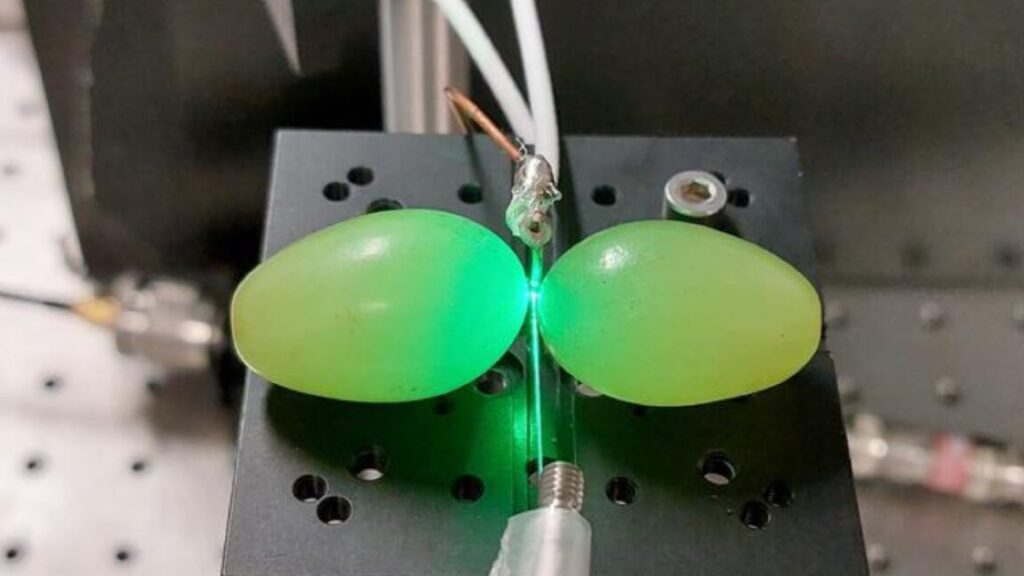The microwaved grape trick also shows their promise as alternative microwave resonators for quantum sensing applications, according to the authors of this latest paper. Those applications include satellite technology, masers, microwave photon detection, hunting for axions (a dark matter candidate), and various quantum systems, and driving spin in superconducting qubits for quantum computing, among others.
Prior research had specifically investigated the electrical fields behind the plasma effect. “We showed that grape pairs can also enhance magnetic fields which are crucial for quantum sensing applications,” said co-author Ali Fawaz, a graduate student at Macquarie University.
Fawaz and co-authors used specially fabricated nanodiamonds for their experiments. Unlike pure diamonds, which are colorless, some of the carbon atoms in the nanodiamonds were replaced, creating tiny defect centers that act like tiny magnets, making them ideal for quantum sensing. Sapphires are typically used for this purpose, but Fawaz et al. realized that water conducts microwave energy better than sapphires—and grapes are mostly water.
So the team placed a nanodiamond atop a thin glass fiber and placed it between two grapes. Then they shone green laser light through the fiber, making the defect centers glow red. Measuring the brightness told them the strength of the magnetic field around the grapes, which turned out to be twice as strong with grapes than without.
The size and shape of the grapes used in the experiments proved crucial; they must be about 27 millimeters long to get concentrated microwave energy at just the right frequency for the quantum sensor. The biggest catch is that using the grapes proved to be less stable with more energy loss. Future research may identify more reliable potential materials to achieve a similar effect.
DOI: Physical Review Applied, 2024. 10.1103/PhysRevApplied.22.064078 (About DOIs).


